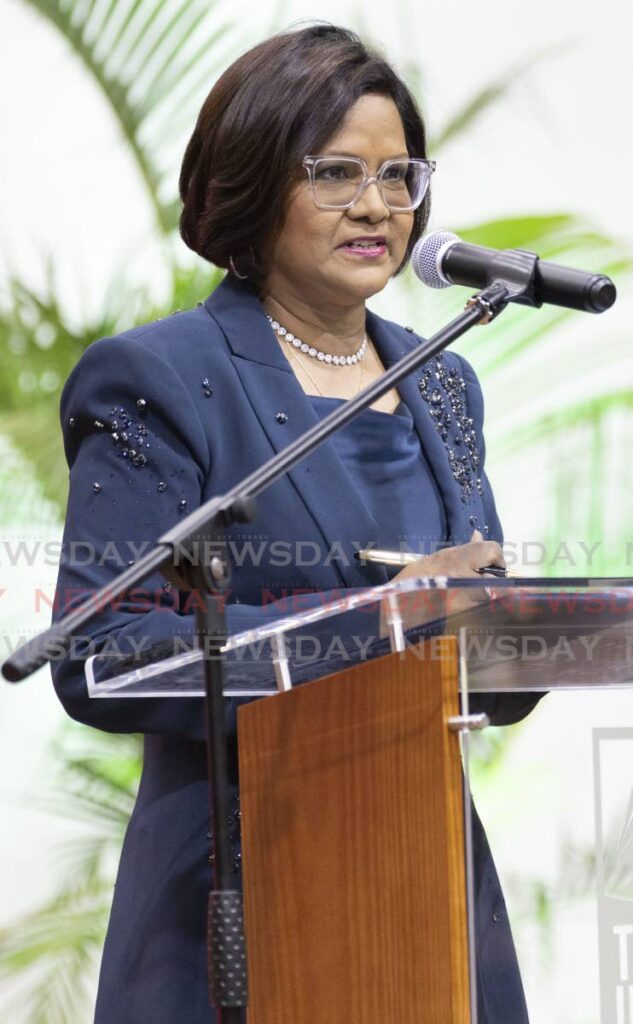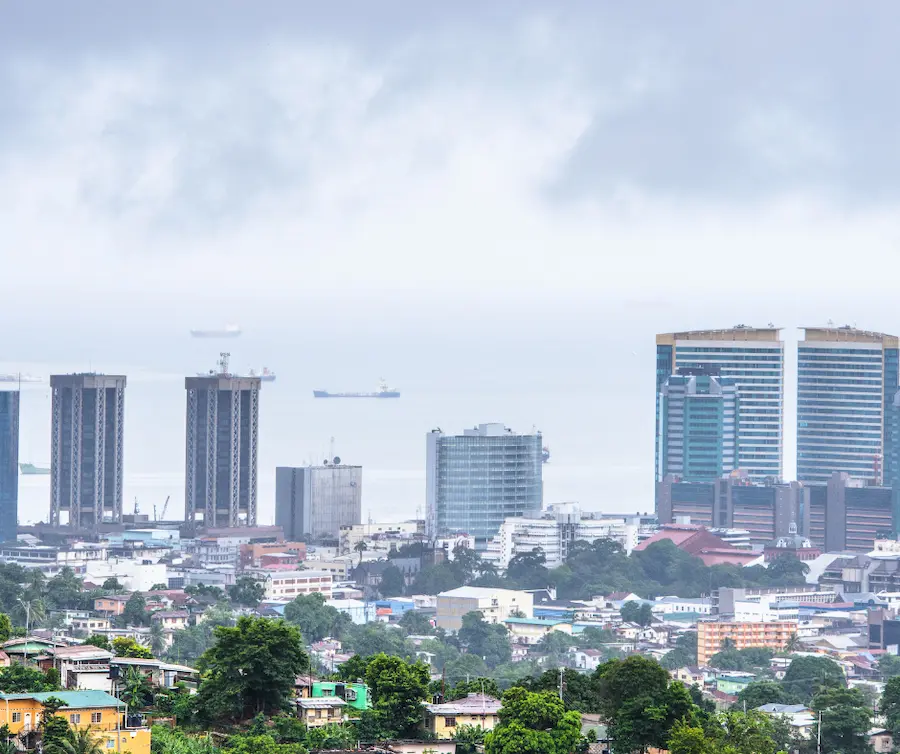
State of emergency declared in TT

The Emergency Powers Regulations, 2024 sets out the conditions under which the state of emergency proclaimed by the President on December 30 will be carried out. The 12-page document was released shortly after 9 pm on December 30.
Section 3(2)a says the President can make orders prohibiting or restricting the possession or use by any person of body of people of any of the specified articles, which include firearms, ammunition and explosives.
Section 3(2)b-d says she can make provision for control of the harbours, ports and territorial waters of TT, and the movements of vessels; the transportation by land, air or water and the control of the transport of persons and things; and trading, exportation, importation, production and manufacture.
Section 3(2)f-g says she can make provision for authorising the search of persons and premises and the seizure of anything and its detention for so long as may be necessary for the purposes of any examination, investigation, trial or inquiry; and authorising the interrogation of computers and electronic devices seized under paragraph (f).
Under section 3(2)e and j, she can make provision for the taking, possession and disposal of any property which is in a dangerous state or injurious to the health of human beings, animals or plants; and compensation for the appropriation, or the taking of possession or control or the use of property on behalf of the Government.
>
Under the regulations, the Commissioner of Police is given the power to stop people using the specified articles.
She is given the power to impose on any person any restrictions in respect of his employment or business, in respect of his place of residence, and in respect of his association or communication with other people.
Section 4(1) gives the police commissioner powers to prohibit any person from being out of doors between such hours as may be specified, except under the authority of a written permit granted by such authority or person as may be specified.
The CoP can require that person to notify a given authority of his movements in a manner and time to be specified, prevent the person from travelling unless given permission, make them leave a place and prevent them from visiting a specified place.
COMPENSATION CAN BE ORDERED
Young said on December 30 there would be no curfew imposed.
Section 6 says no-one carrying out acts under lawful direction and authority of the regulations should be liable to any suit or action, but the President, in her discretion, order that compensation shall be paid out of the public funds to any person she is satisfied had suffered loss or damage by reason of the exercise, other than under Section 3(2)j and regulation 4.
Section 8 says anyone who is found with firearms, ammunition and explosives, or anything that could have contained these items, has to prove they have acquired the items legally or is guilty of an offence.
It continues that anyone who is found in the company of someone who unlawfully has the above items in circumstances where it can be presumed he or they have acted or intend to act in a manner prejudicial to public order or public safety also commits an offence.
>
Section 9 says a police officer may stop and search anyone he reasonably suspects of having any firearm, ammunition or explosive in their possession or of having committed or being about to commit any other offence prejudicial to public safety or order. The officer can seize any of the above items or other items he believes will be used to commit an offence.
Section 11 says no person who surrenders any firearm, ammunition or explosive during any prescribed period, and otherwise in accordance with an order to surrender, shall be prosecuted under the Firearms Act or regulation for illegally purchasing, acquiring or possessing such firearm, ammunition or explosive prior to the time of such surrender or at that time. No such period or order has been prescribed up to press time.
Section 12 says no one should attempt, orally or otherwise, to influence public opinion in a manner likely to be prejudicial to public safety and order. They shall not do any act or have any article in their possession with a view to making or facilitating the influencing of public safety and order.
Section 13 says a police officer can, without a warrant, with or without assistance and with the use of force if necessary, enter or search any vessel, vehicle or individual, whether in a public place or not, if he suspects that any evidence of the commission of an offence is likely to be found on such premises, vessel, vehicle or individual and may seize any evidence so found.
Section 19 said anyone driving or in control of a vehicle in motion shall stop that vehicle on being required so to do by a police officer in uniform.
Section 14(1) says a police officer can arrest anyone he suspects has acted, is acting or is going to act in a manner that is prejudicial to public safety or to public order, or has committed, is committing or is about to commit an offence against the regulations.
COPS CAN USE FORCE
The police officer may take such steps or use any force he finds necessary to make the arrest or prevent the escape of these people.
Section 14(3) says people detained under the regulations cannot be held for more than 48 hours, unless authority is given by a magistrate or a senior police officer to hold them. This further period should not exceed seven days for evidence to be gathered, and the person should only be held if the senior officer or magistrate feels evidence cannot be gathered in 48 hours.
>
Section 16 said where a woman is to be searched, the search shall only be carried out by another woman.
Section 17 says people held under the detention schedule or Section 14 in the regulations will not be eligible for bail. They will not be able to get bail if charged with an offence if the magistrate feels the person is likely to engage in or to incite persons to engage in the commission of breaches of the peace or of any other offence against the person or property or the regulations.
It said the writ of habeas corpus shall not lie in the case of any person denied bail and no jurisdiction to grant bail in the case of such denial shall be exercised by any Judge of the Supreme Court under any rule of law or other authority. Once the regulations end, nothing shall be treated as continuing to have effect, in terms of the continuance of any prosecution for an offence under the regulations or for any other reason.
Section 18 says a court can remove the accused or any other person from the proceedings if it feels the person will conduct themselves in a manner which will interrupt the proceedings and make continuance of the trial impracticable.
Section 20 said the Defence Force, under the Chief of Defence Staff, will be put in a ready position to assist and co-operate with the police service. A member of the defence force will have the powers of a police officer and shall, where acting in accordance with any general or specific instruction of the Chief of Defence Staff or any superior officer of the force, be given such powers.
The Schedule lays out some aspects of the operationalisation of the regulations.
If the National Security Minister is satisfied that someone needs to be detained to stop them acting in a manner prejudicial to public safety, he can issue an order stating the grounds for the detention. It said however, that no defect of any kind on such statement shall invalidate the order.
It said once people are detained via an order, they should be informed, in language they understand, of their right to a legal adviser at their own expense who can be retained and instructed without delay, to hold communication with them without being overheard and to represent them before the tribunal. If a detainee cannot afford a representative, he can apply to the tribunal for one to be appointed. The funds for such a representative can be supplied from funds set aside by Parliament.
A tribunal shall be established by the Chief Justice, consisting of a Chairman and two others. The chairman must be an attorney-at-law. A public officer shall be appointed as the secretary.
>
People detained under the regulations can ask for a review of their case before the tribunal. Once a review request is received, the minister must submit to the tribunal the reason the order was made and any other particulars necessary.
The detainee must be given the information which says why he was detained, and be informed of when court proceedings will be held so he can prepare a defence.
The tribunal can include or exclude any person, including the detainee, from the courtroom as it deems necessary.
The tribunal shall say whether it thinks there is sufficient cause for the person to be detained, and make recommendations whether or not he should be retained or released. The minister can decide whether or not he wants to follow these recommendations.


